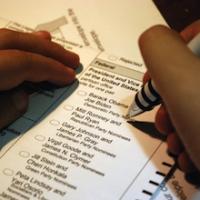Hindsight Bias and the US Presidential Election

Now that the US presidential election is over, how certain were you that you knew what the outcome would be? Your answer may suggest that you’re a victim of hindsight bias.
Hindsight bias is a fascinating cognitive bias sometimes known as the “I knew it all along” bias. In particular, after an event, people often believe they knew the outcome of the event before it happened and exaggerate the predictability of the event after it has happened.
Psychologists attribute hindsight bias to our need to find order in the world by creating explanations that allow us to believe that events are predictable. The problem is that finding erroneous links between the cause and effect of an event may result in incorrect oversimplifications.
Where does hindsight bias turn up? Well, many places—sporting events, business, politics, and finance, among others. For example, many people now claim that signs of the technology bubble of the late 1990s and early 2000s were very obvious. This is the hindsight bias at its best: If the formation of a bubble had been obvious at the time, it probably wouldn't have escalated and eventually burst.
So it wouldn’t be surprising if, in the presidential election, many people felt not only that they knew the result all along, but that they also predicted it beforehand. And of course, many did. But if all the research into the hindsight bias is any indication, more people will claim they predicted the outcome beforehand than actually did.
In your professional life, the hindsight bias can be a problem if it prevents you from learning from your mistakes or leads you to have more confidence in your predictions than is justified. So if you frequently hear yourself saying to others, “I knew it!” or “I told you so,” pay attention: You may be experiencing the hindsight bias and remembering your predictions differently after the fact from the predictions you made before the fact.
How can you avoid hindsight bias? One way is to write down your prediction when you first make it. You’ll be less likely to recall that prediction differently afterwards. And even if you do, you’ll have written documentation of your original prediction.
How else might you help others—or yourself—avoid falling victim to hindsight bias?

